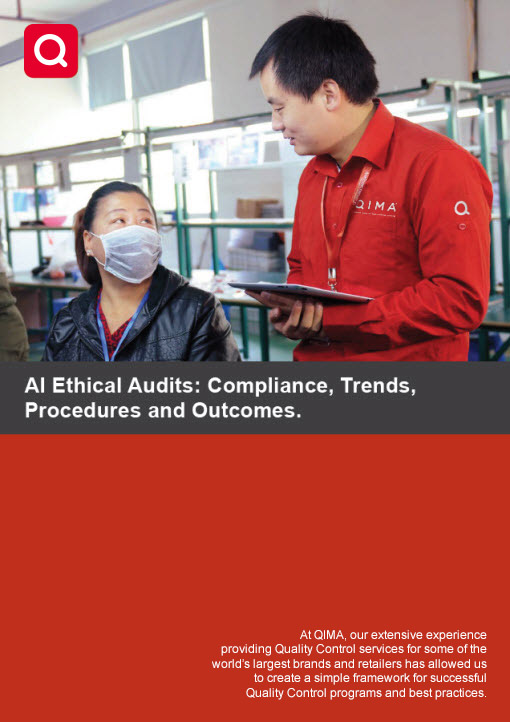Complimentary White Paper
QIMA Ethical Audits: Compliance, Trends, Procedures and Outcomes
Read about the processes and criteria involved in a successful ethical audit program.
This White Paper will give you insights about:
- The driving factors behind the need for ethical audits, such as transparency, corruption, waste management and child labor.
- The processes and criteria involved in executing a successful ethical audit program, the manner in which suppliers are graded, and how ethical issues can be detected
- A case study illustrating how a clothing brand worked with QIMA to eliminate child labor from their supply chain and bring their suppliers up to standard
By downloading this content from QIMA you agree to our privacy policy and terms and conditions
What are the Greatest Challenges to Ethical Compliance?
In modern supply chains, corruption and the lack of transparency are the two major issues that go hand in hand, especially in low-cost manufacturing destinations. In regions where corruption thrives, it gives rise to such grave problems as human rights abuses, child labor, and lack of education regarding good manufacturing practices.
Demand for ethical audits has been on the rise over the past decade, and has surged in the aftermath of the 2013 Rana Plaza disaster, which shone a light on the scale of human rights abuses and unauthorized subcontracting in global supply chain. Comprehensive supplier audit programs, conducted regularly and with meaningful follow-up, are among the crucial methods of acquiring data about the real state of supply chains.
Elements of Effective Supplier Audits
- Establishing audit criteria. Audits can be conducted to globally accepted standards (SA 8000, ETI), clients’ own corporate codes of conduct, or QIMA's best-in-class social audit protocol.
- Defining a clear scoring system. Non-compliances are categorized according to severity, and impact the outcome of the audit accordingly.
- Following a standardized process. This includes preparation, thorough on-site review (including confidential worker interviews), preparing corrective action plans (CAP), and follow-up.
- Repeat audits and follow-up. Repeat audits are performed to assess the CAP implementation and advise the client on further action.
Download the whitepaper to learn more about the state of ethical compliance in global trade and read a case study about a UK apparel brand addressing child labor risks in its supply chain.


